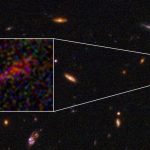Key Takeaways:
- Scientist Avi Loeb proposes a controversial theory that suggests our universe may have been created by a highly advanced alien civilization in a distant laboratory.
- He suggests that this civilization could have used advanced technology to generate a new universe through quantum tunneling, combining ideas of a higher power and quantum gravity.
- Loeb introduces a new classification system for advanced civilizations based on their ability to reproduce astrophysical conditions, which differs from the Kardashev scale.
- Earth’s low-level technological civilization falls into class C, as we cannot replicate our current conditions if the sun were to die.
- Class A civilizations, like the supposed creators, could generate dark energy and create “baby universes,” potentially giving rise to life, but only one civilization at a time might reach this level of sophistication due to competition.
Could our universe’s existence be the result of an experiment conducted by an incredibly advanced extraterrestrial civilization? Avi Loeb, a Harvard astronomer, entertains this provocative idea. He proposes that a superior class of beings from a distant corner of the cosmos might have deliberately crafted our universe in a remote laboratory setting.
In an op-ed published in Scientific American last year, Loeb suggests that, given the flat geometry and zero net energy of our universe, an advanced civilization could have harnessed technology to initiate the birth of a new universe from nothing through the process of quantum tunneling.
This concept harmonizes seemingly contradictory notions: the influence of a higher power on our destiny and the secular principles of quantum gravity, a branch of physics still unresolved on Earth.
Central to this theory is the advanced civilization’s capacity to seamlessly merge quantum mechanics and gravity, allowing them to understand and replicate all the fundamental components of the universe. This endeavor, as Loeb acknowledges, would be an immensely challenging undertaking.
Loeb also introduces a novel classification system for gauging the advancement of civilizations, deviating from the energy-based Kardashev scale. Nikolai Kardashev’s scale ranks civilizations according to their ability to generate and consume energy. Loeb’s framework categorizes civilizations based on their capability to recreate the astrophysical conditions responsible for their existence.
Humanity, characterized as a “low-level” technological civilization, is classified as class C, as we lack the means to replicate our existing conditions in the event of the sun’s demise. Loeb even suggests that we might qualify for class D due to our detrimental impact on our planet. In contrast, class B civilizations possess the sophistication to recreate their living conditions independently of their host star.
Class A civilizations, resembling the presumed architects of our universe, possess the ability to produce substantial amounts of dark energy. As Loeb speculates, they could generate “baby universes” – smaller universes under their control – which might potentially support life. He also proposes that due to competitive factors, only one advanced civilization at a time may attain this level of sophistication.
While this idea may seem outlandish, it sparks intriguing questions about what truly defines technological advancement in a civilization, the possibility of our reality being a simulation, and the nature of this hypothetical cosmic “laboratory.”


